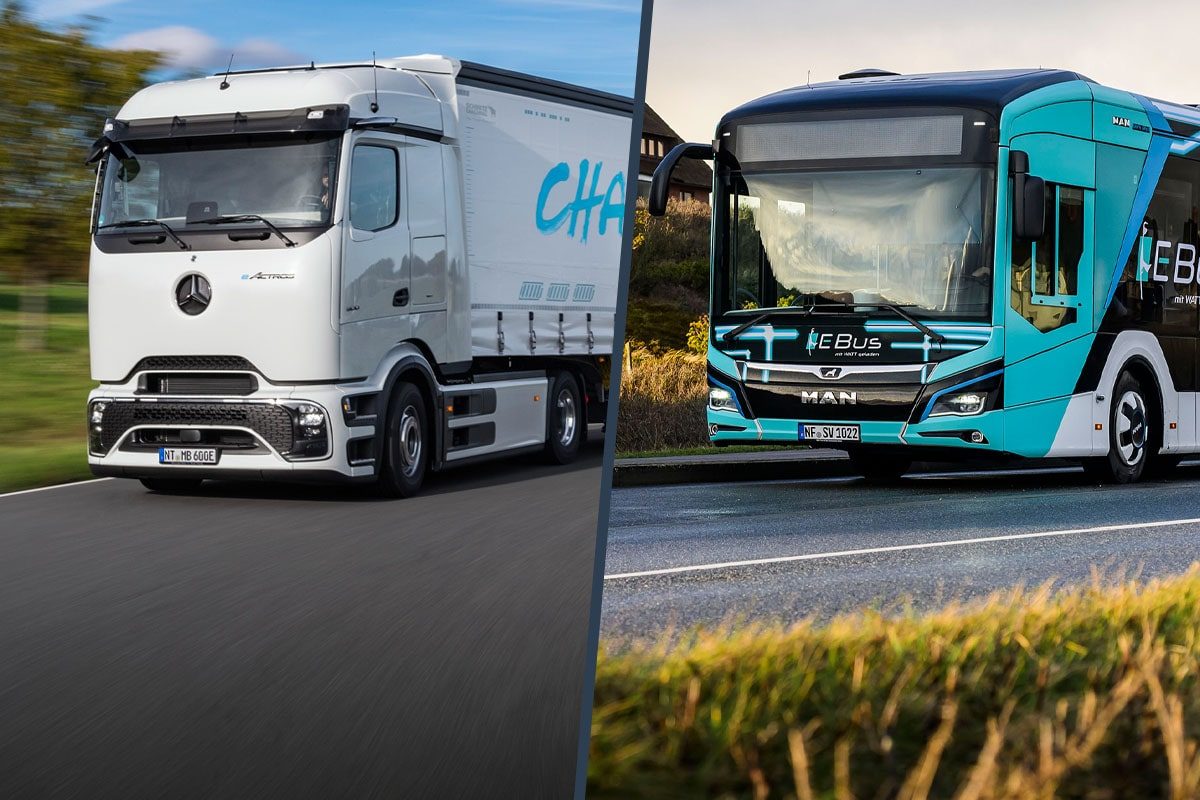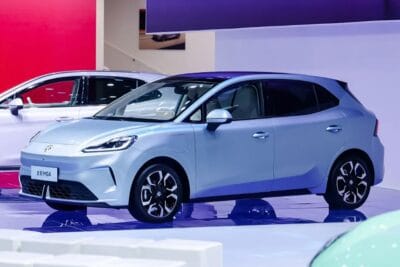
ICCT ranking: Who sells the most electric commercial vehicles in the EU
We recently presented a close-up view of this year’s e-bus and e-truck market development based on the Q1-Q3 data from the European Automobile Manufacturers’ Association (ACEA). However, the ICCT’s recently published analysis goes into more detail about the association’s statistics and also presents a ranking of the most successful manufacturers in the electric bus and electric truck segment. In the third quarter, Volvo topped the list for heavy-duty electric trucks, Iveco for light and medium-sized electric trucks and Daimler Buses for electric buses.
The ICCT also presented EU registration statistics as a basis. However, the figures differ from those of the ACEA because the authors of the study have chosen a different format. The ICCT classifies all vehicles over 12 tonnes (ACEA: > 16 tonnes) as heavy-duty electric trucks and all vehicles between 3.5 and 12 tonnes (ACEA: 3.5 – 16 tonnes) as light and medium-duty. The classification for buses is identical (both > 3.5 tonnes). In principle, however, the ACEA does not differentiate between battery electric vehicles and plug-in hybrids, but recognises all externally chargeable vehicles together. The ICCT is different, zooming in on ‘zero-emission vehicles’ (BEV and FCEV).
It is therefore important to keep these definitional differences in mind. According to the ICCT, in the third quarter of 2024 just under 2,900 zero-emission commercial vehicles were sold in the EU (more precisely: EU-27 excluding Bulgaria): 700 heavy-duty trucks, 1,000 light and medium-duty trucks and 1,200 buses. Looking at the year to date (Q1 – Q3), there are 2,400 registered heavy-duty e-trucks, 3,400 e-trucks between 3.5 and 12 tonnes and 4,100 e-buses. Compared to the same period in 2023, the registration figures for heavy trucks represent an increase of 42 per cent and a market share of 1.2 per cent among all drive types. In the light and medium-sized e-truck segment, there was an increase of 47 per cent and the market share of zero-emission vehicles reached 10 per cent in the year to date (although this is mainly due to vans within the segment). Electric bus sales increased by 24 per cent compared to the first nine months of 2023 and the EV share of the overall market levelled off at around 15 per cent.
However, the year was not fundamentally homogeneous. In the European truck market as a whole, for example, the second quarter with 110,000 registered trucks will go down in the annals as extremely strong, but this was followed by a sudden slump in the third quarter with only 74,000 new units. The registration statistics for electric commercial vehicles also show this dip, but not as pronounced as for combustion engines. The cumulative sales trend for heavy-duty electric trucks, medium and light-duty electric trucks and buses in the EU is undoubtedly on course for a record.
Let’s take a look at the manufacturer rankings compiled by the ICCT on the basis of its registration data: Volvo Trucks maintained its leading position in the heavy-duty e-truck segment (12 tonnes and over) in the third quarter with a market share of 36 per cent. However, according to the ICCT, this figure was already 43.5 per cent in the second quarter. Incidentally, the analysts do not provide absolute figures. In its statistics, the ICCT only deals with relative market shares, whereby the individual sales figures could be calculated in each case (using the 700 electric trucks in Q3).
In second place in the Q3 ranking is Renault Trucks (32% market share), the sister company of Volvo Trucks, as both manufacturers are part of the Volvo Group. Mercedes-Benz Trucks follows at a distance with a 13 per cent market share in the EU (although the Stuttgart-based company is in a much better position in Germany with a 36 per cent market share). Then comes Scania (4%), followed by Iveco and MAN. Basically, the study authors emphasise that around 86 per cent of all vehicles registered in the EU were sold in five countries (Germany, France, the Netherlands, Sweden and Denmark) for electric trucks weighing 12 tonnes or more.
For a long time, there was an undisputed leader among manufacturers of e-trucks with 3.5 to 12 tonnes, but according to the ICCT, it was clearly beaten in the third quarter of 2024: ‘For the first time since we began observing the market last year, Ford has lost its position as the leader in the zero-emission light and medium-duty truck segment,’ say the analysts. The E-Transit van had long been the dominant model in this segment. However, its sales fell from 600 (Q2/2024) to 230 units in the third quarter of 2024. Instead, the Iveco eDaily sold around 400 units. It is clear that vans dominate in this segment. Sales of light e-commercial vehicles are already much more widespread than sales of e-trucks in the 7.5 tonne class, for example. In the manufacturer ranking, Iveco (40% market share) and Ford (23%) are in the lead. They are followed by Mercedes (15%), Mitsubishi Fuso (9%) and Maxus (5%).
In the electric bus market, it is noticeable that many more manufacturers are vying for customers’ favour. Unlike in the electric truck market, no OEM can claim a significant share for itself. The leader in the third quarter is Daimler Buses with 180 electric vehicles sold and a market share of 16 per cent in the EU. It is followed by Ford, Solaris, BYD, MAN, Karsan, VDL and Ebusco, six manufacturers with market shares of 5 to 8 per cent. The remaining 40 per cent of the market is shared by other players with smaller market shares, which the ICCT does not list by name.




2 Comments